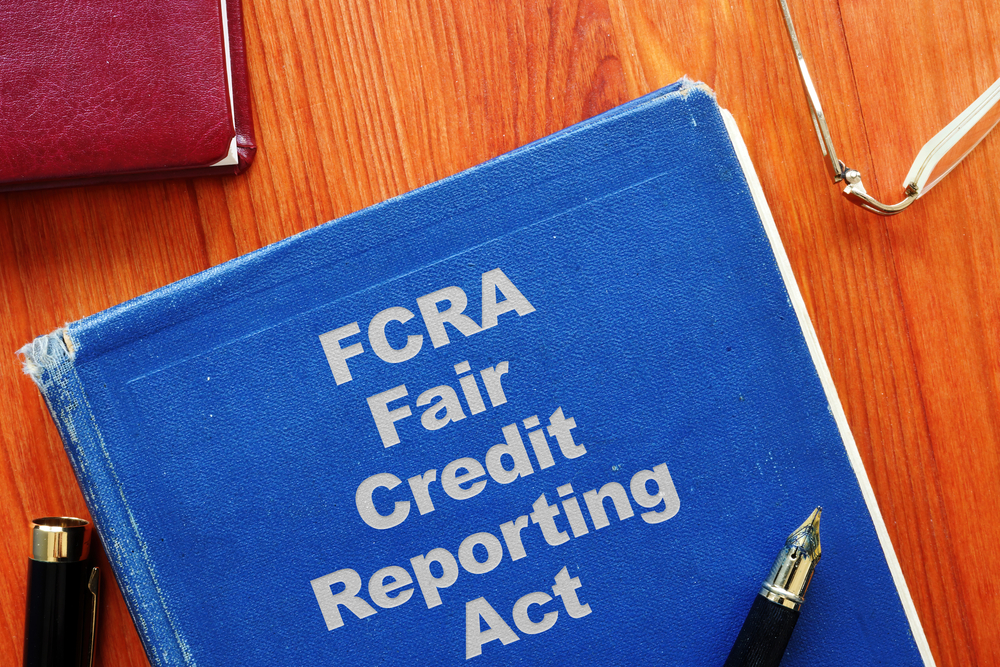
22 Nov Common Violations & Penalties Under The FCRA
When you apply for a job or request a loan to buy a car, you have a certain set of rights regarding your credit. These rights are applied under the Fair Credit Reporting Act, enforced by the Federal Trade Commission. You have the right to learn how they use your credit and report that information to the credit reporting agencies. If creditors fail to meet these requirements, they may have to pay Fair Credit Reporting Act penalties. With this list of FCRA violations, you can learn what to expect and how to protect yourself.
The Importance of the FCRA
The Fair Credit Reporting Act details a list of rights that consumers have to protect their financial information, privacy and access to future credit. The FCRA achieves this goal by setting regulations on creditors and credit reporting agencies for the ways that they handle or report consumer credit information. With these rules, the FCRA aims to help consumers ensure that their credit report information is accurate and used appropriately. It also creates a mechanism for consumers to dispute inaccuracies or file a complaint about a violation of the Fair Credit Reporting Act. The effect of the act is to create a path in which your credit report and score reflect your actual financial actions.
Legal Rights & Protections Under the FCRA
The FCRA is one of several consumer protection laws that provide rights that you are entitled to as a consumer. These rights are designed to protect your financial privacy, ensure accurate reporting, avoid unlawful uses of your credit and pave the way for a smooth dispute resolution process. Your rights under the FCRA include the right to:
- • Know everything that is in your credit report, including the creditors, open accounts, current debts and history of resolved debts
- • Know how your credit report is being used, especially if you are denied opportunities as a result
- • Request your credit score, often for a fee
- • Dispute inaccurate information
- • Demand accurate, current information published to your credit report
- • Limit access to your credit report
- • Restrict offers of credit
- • Seek damages from those who violate these rights
Although the existence of the law should direct credit reporting agencies and creditors to use lawful practices when reporting your credit or handling credit inquiries, you must confirm that they are following these practices. To protect yourself and your financial information, you should understand your legal rights in credit reporting, check your credit report regularly and reach out to an attorney when you spot an inaccuracy.
Common FCRA Violations and Their Impact
The most common FCRA violations include:
- • Failing to note disputed debts: If you dispute a debt that is currently with a debt collector, the credit reporting agency is required to notify all reporting agencies of the dispute. Failing to note that the debt is currently in dispute can lead to additional actions against you, including attempts to collect.
- • Reporting inaccurate information: Credit report accuracy is the keystone of the credit system. If a creditor or credit reporting agency reports inaccurate information, they are responsible to verify the debt and confirm its accuracy. Failing to provide accurate information, especially reporting resolved debts as unpaid or delinquent, can decrease your credit score and limit your access to new credit lines.
- • Continuing to report expired data: Your negative financial data should leave your credit report after seven years, or sooner in some cases. Credit reporting agencies cannot continue to report old negative information past this interval or attempt to pass off resolved debts as new or ongoing. This misclassification can create problems with your ability to apply for new loans.
- • Misclassifying debt discharged by bankruptcy: If you go through bankruptcy and your debt is discharged, that discharge should show up on your credit report. Creditors misreporting discharged debt as active or describing it as a charge-off or other classification, can make the debt look active to other creditors.
- • Mixing files of customers: Creditors and credit reporting agencies are required to keep individual customer records distinct. Accidentally mixing files between customers of similar names or other data could inaccurately add debts and late payments to your credit report, which could decrease your chances of securing a loan.
FCRA Violation Penalties
When creditors or credit reporting agencies violate the FCRA, they put themselves at risk for fines and other penalties. If you suspect that one of these organizations has violated your rights under the FCRA, you should gather all the relevant data to prove your case. You should then hire a FCRA law firm to help them with the case.
Fair Credit Reporting Act penalties and fines depend on the severity of the infraction. If you can prove your case, you may be awarded:
- • Financial damages
- • Attorneys’ fees and costs
- • Punitive damages
Keep in mind that there is a statute of limitations for filing a suit over these common FCRA violations. As such, you should keep a close eye on your credit report and take prompt action to address inaccuracies.
Protecting Yourself From FCRA Violations
Avoiding a violation of the Fair Credit Reporting Act takes some diligence on your part, especially when you know that a business is going to request your credit report. You can decrease the likelihood that a violation will affect your credit by following these steps:
- • Read all documentation when you apply for a loan or line of credit.
- • Research what companies have to give you when they request your credit report, and make sure they provide it.
- • Check your credit report at least once a year and consider requesting your credit score as well.
- • Consider credit monitoring services, especially if you are currently dealing with issues surrounding identity theft.
Credit monitoring services provide a regular check for changes to your credit report, with notifications for new inquiries, negative reports, and other aspects. You usually must pay for this service, so make sure that you understand what is included before you sign up.
Creditors and other entities can avoid Fair Credit Reporting Act violation penalties by creating processes to follow the law. Best practices include:
- • Setting clear rules for the permissible use of credit
- • Training staff on consumer rights and creditor responsibilities under the FCRA
- • Regularly reviewing credit reporting for accuracy
- • Creating a process for handling disputes
An outward effort can contribute to increasing trust between the consumer and the business.
Work With the FCRA Experts
The FCRA is a landmark piece of consumer rights legislation, providing greater protections to consumers and their financial data. By taking the steps to understand your rights under the FCRA, you are in a better position to advocate for your rights when applying for credit, getting a new job, or reviewing your credit report. At Stein Saks, PLLC, we offer expert services from the best FCRA attorneys, making a one-stop solution for common FCRA violations. Contact us to learn more about your options and how we can assist.


Sorry, the comment form is closed at this time.